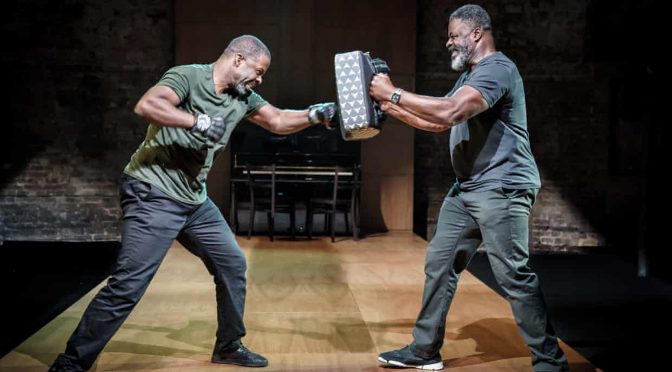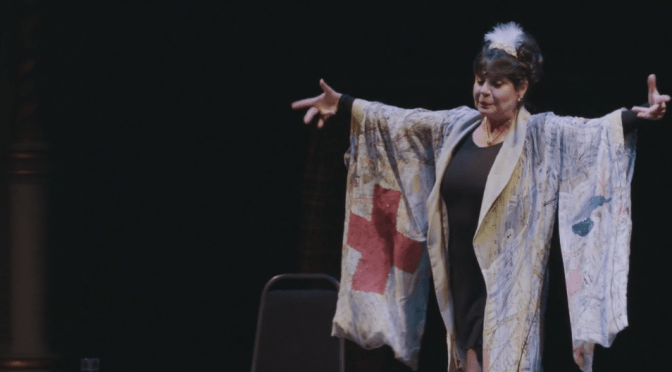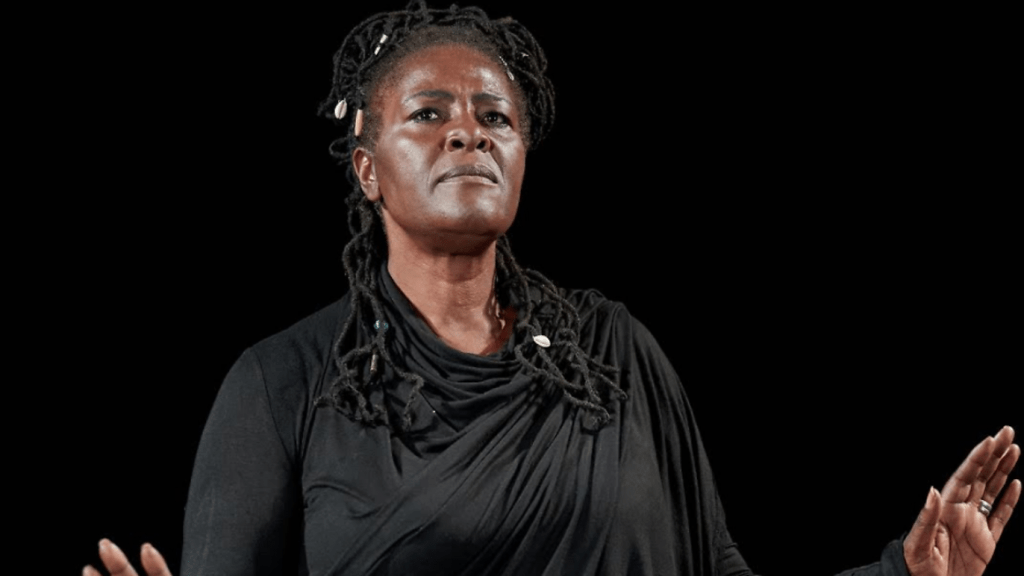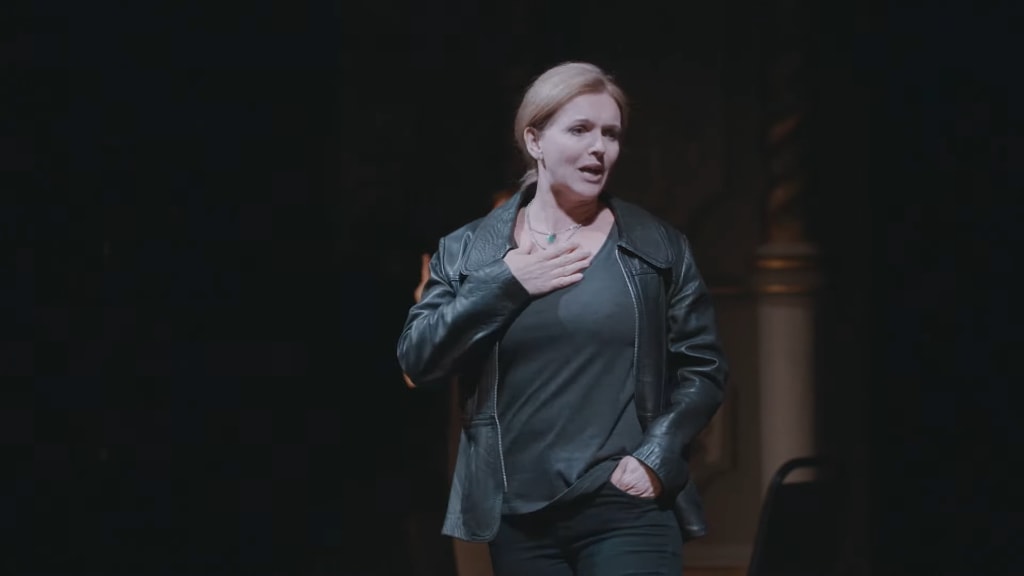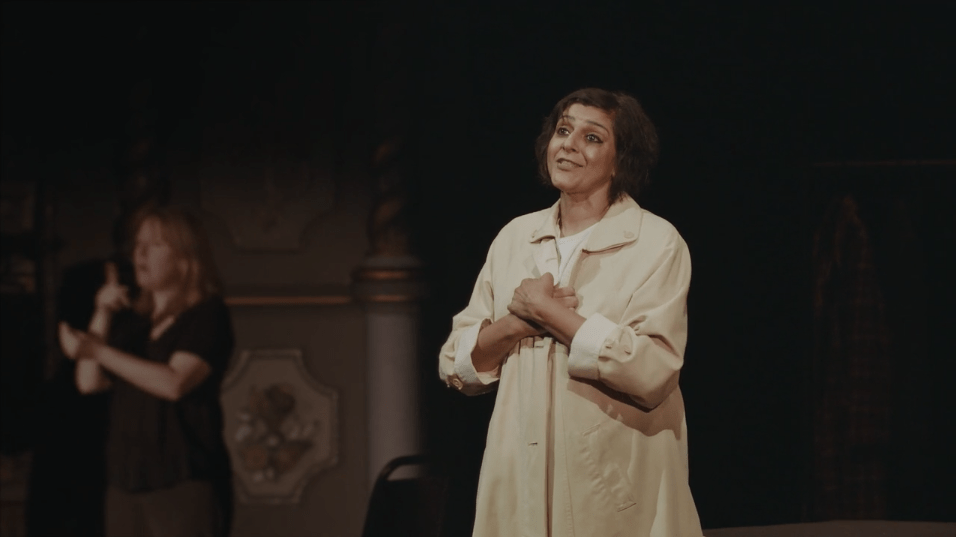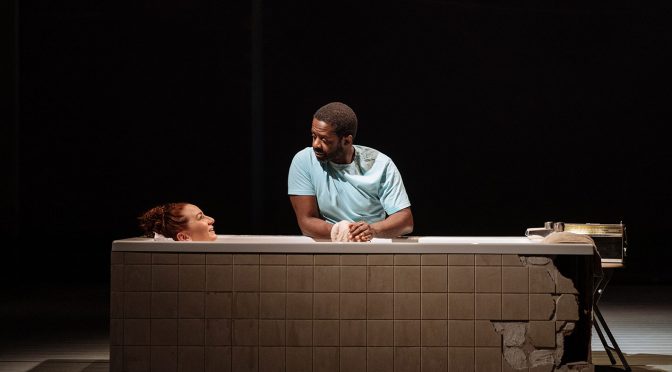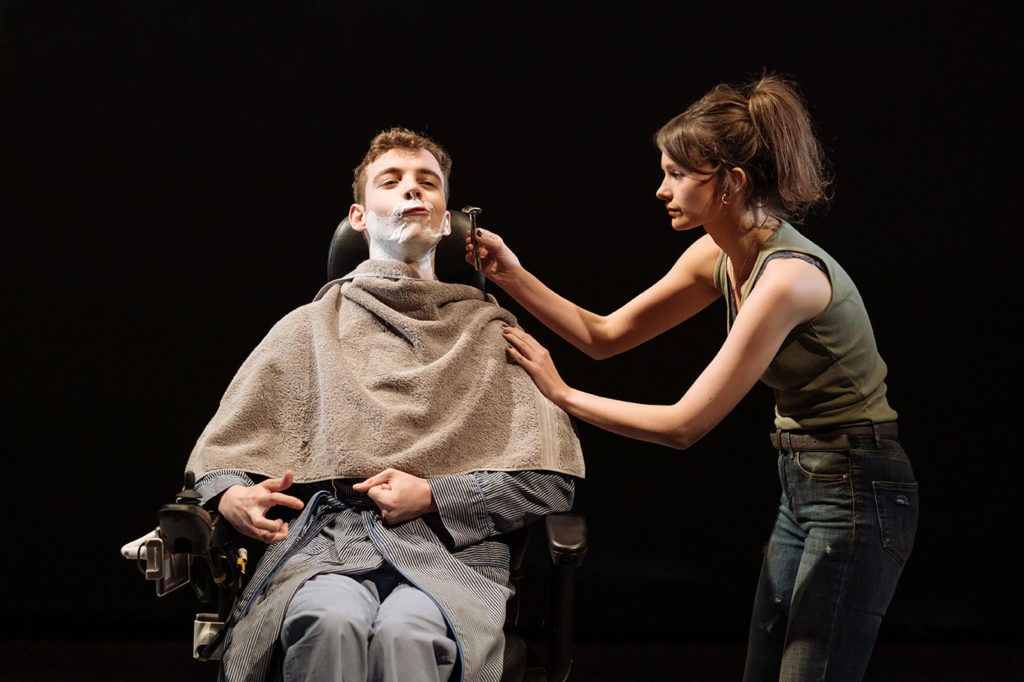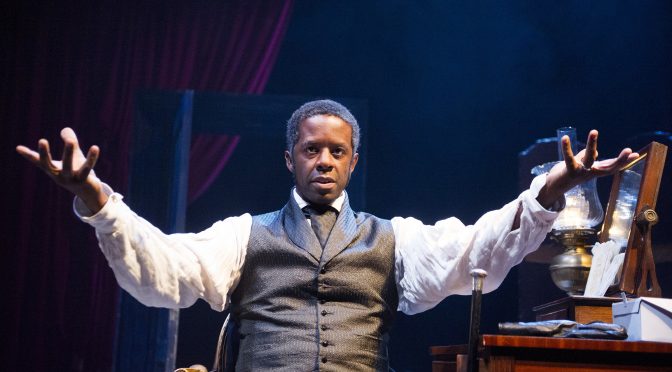A sell-out show when streamed live, now available to watch as a recording, Lolita Chakrabarti’s new play is a family drama with shocks and surprises. The story of two brothers, who only met at their father’s funeral, Hymn supplies brilliant highs and lows as we get to know two wonderful characters, masterfully performed.
Adrian Lester plays Gil and Danny Sapani is Benny. Directed by Blanche McIntyre, both performances are marked by a naturalism that is clearly Chakrabarti’s aim. A cautious first meeting, blossoming friendship, and the excitement of starting a business together are all handled without feeling contrived. Seeing the two men get to know one another proves joyous.
The solid script and McIntyre’s light touch mean that ‘issues’ of masculinity, race, age and class never feel forced. Passions and prejudices are part of the everyday lives we see here – providing a sense of modesty to the play’s aims. The piece is more convincing and moving as a result. An extended family, particularly Benny’s mother, as well as the men’s dead father, are all vividly conjured. Even a waitress we never see leaves an impression. It’s all good stuff – easy to recommend.
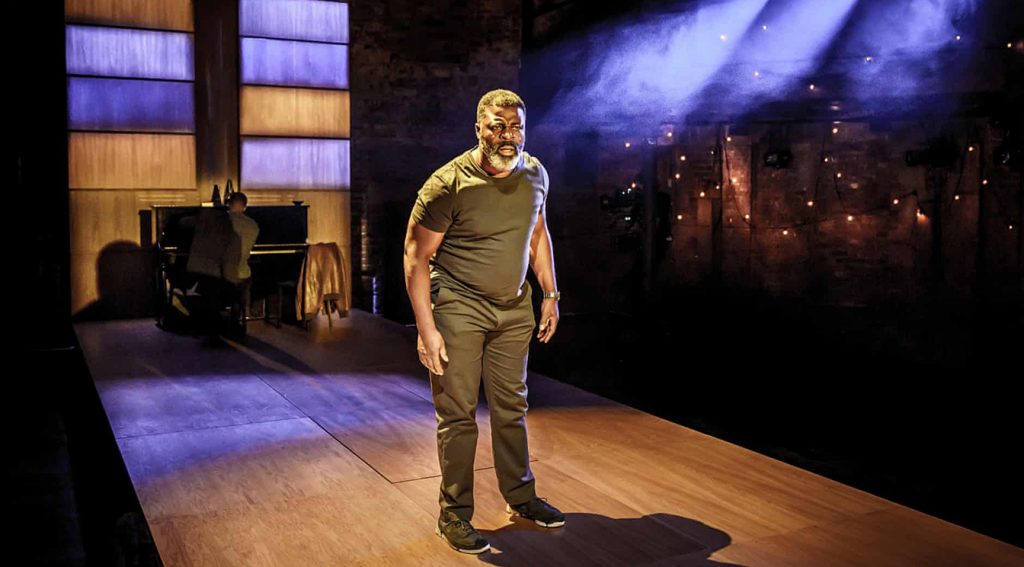
Get ready for a plot spoiler
Because Hymn does not end happily, you might allege that Gil and Benny’s troubles are too well hidden for the dramatic finale – although we know one struggles with alcohol and the other describes himself as “the shooter of blanks” since his businesses always go bust. Plans and lives implode quickly, changing from one scene to another. Clearly that is Chakrabarti’s point – as Benny observes – life is “built on straw”.
It’s to the credit of both play and performers that a death at the end is so upsetting. You really want Gil and Benny’s lives to work out. Having seen how much fun they can have (preparations for a 50th birthday party are a blast) and how much support they can offer one another, things really should be fine. If we feel a little cheated, and want happy endings a little more than usual at the moment, there’s no doubt as to the power of a play that deserves songs of praise.
Until 9 March 2021
Photos by Marc Brenner

